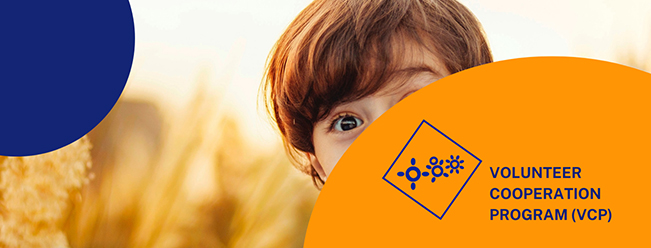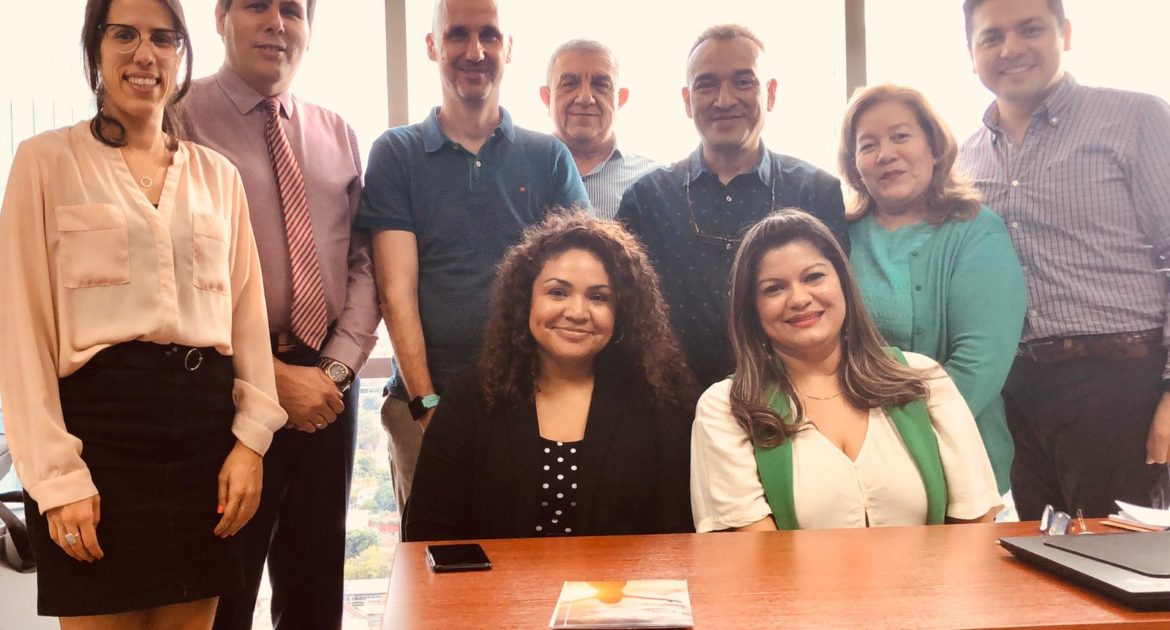
Last January, members of the IBCR Montreal team travelled to Honduras for a week, to meet with their colleagues in the satellite office’s team. This mission took place within the framework of the project against human trafficking and exploitation, especially women and girls, funded by Global Affairs Canada and implemented by the IBCR since spring 2019, in partnership with the Inter-institutional Commission against Commercial Sexual Exploitation and Trafficking in Persons (CICESCT).
During this mission, training courses were provided to the experts of the field team and the IBCR project management methodology was presented. The members of the Montreal’s team were also able to meet the new project manager in Honduras, who took up his duties in January, and both teams could share their knowledge and experience in order to strengthen the action plan and develop effective training. Various development workshops were also held, including with the Secretaria del Trabajo (Minister of Labour) and indigenous populations.
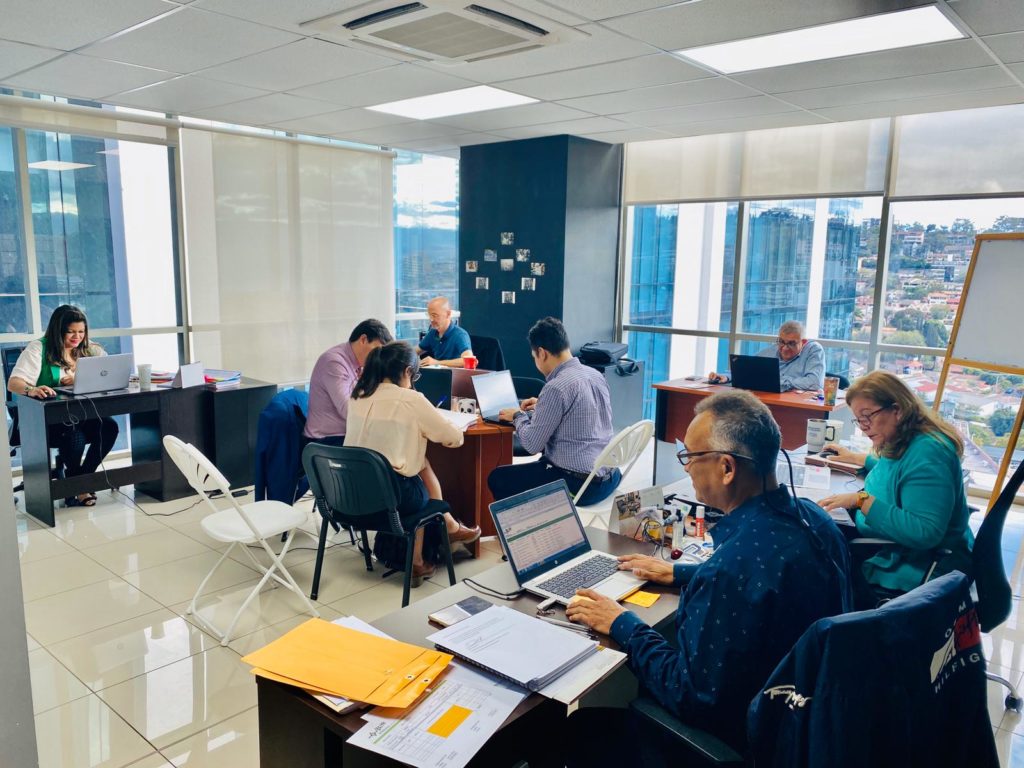
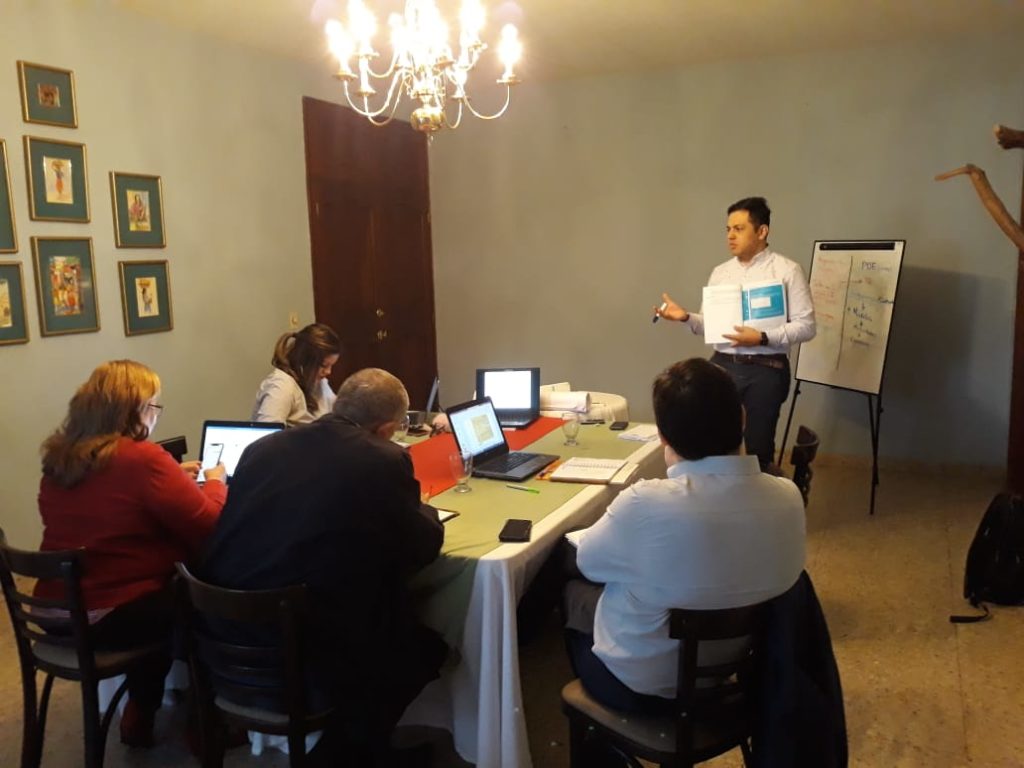
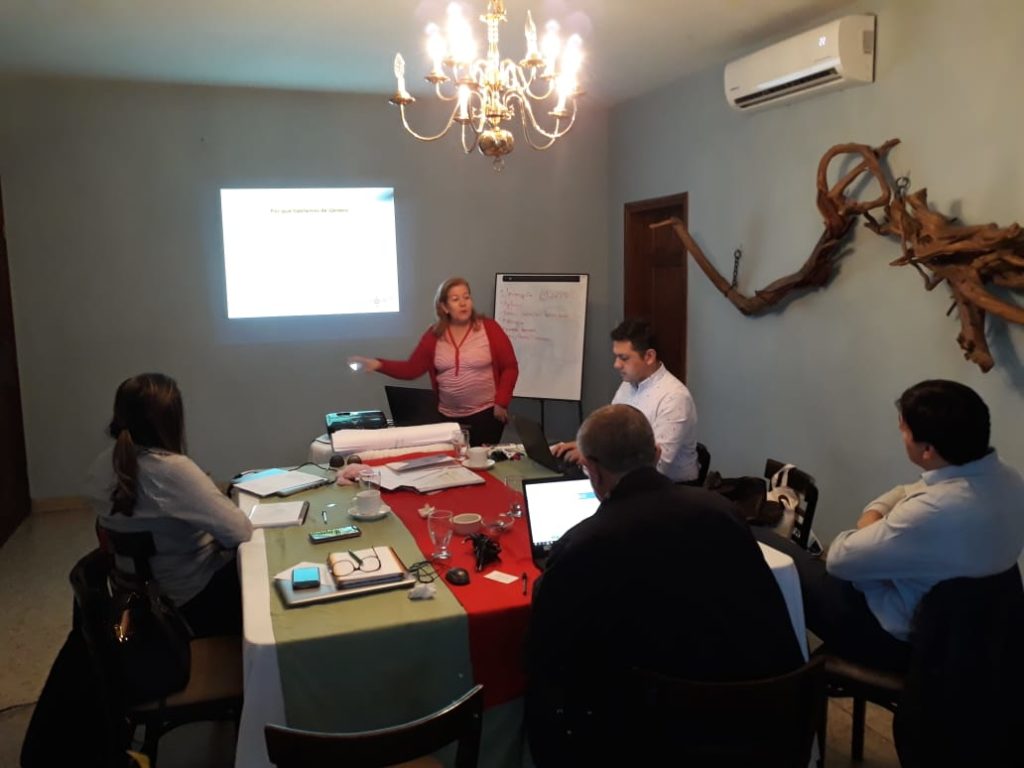
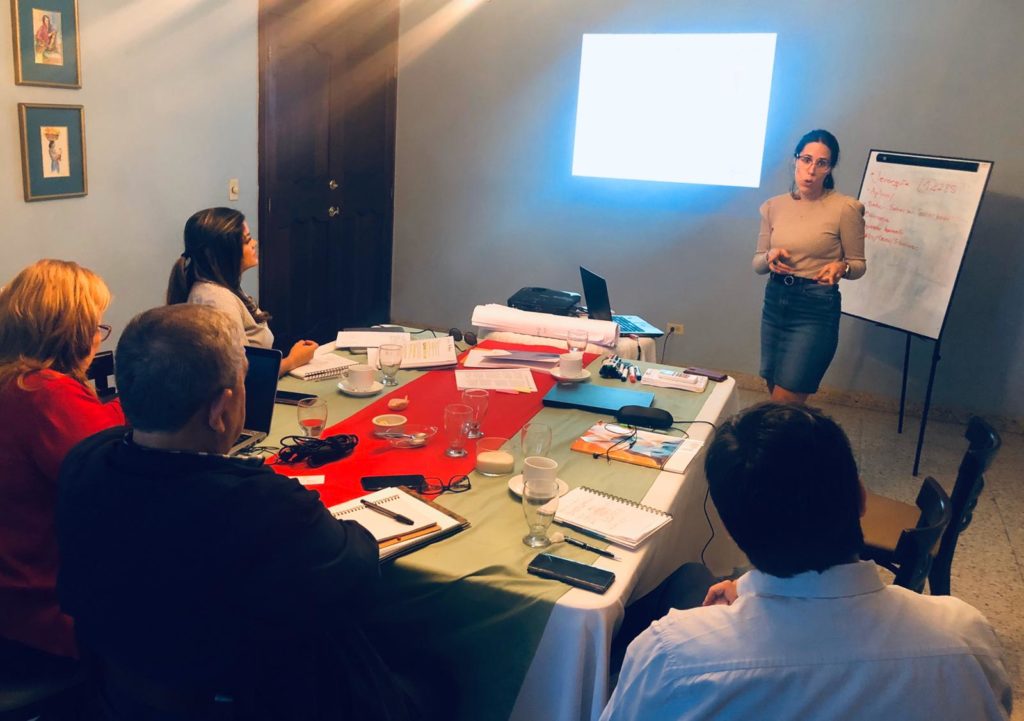
In addition, the team was able to meet with Tulio Mariano González, Director General of DINAFROH, Directorate of Indigenous and Afro-Honduran Peoples, as well as a representative of the indigenous people, to discuss the next steps of the project with these populations.
It was thus decided that, in partnership with the CICESCT, a training session on the phenomenon of human trafficking specifically targeting indigenous and Afro-Honduran populations would be held. As a result, people will learn more about the technical aspects (indicators) of trafficking in order to develop and improve prevention plans.
The week also provided an opportunity to focus on the issue of gender and intersectionality* in the fight against the phenomenon of trafficking and its integration into the project. Exercises on this topic were organised to better orient experts and understand the context in which women and girls live in Honduran society. Ultimately, a normative framework based on an intersectional approach will be established.
Zoom: What is intersectionality?
Created by Kimberlé Crenshaw in 1991, the term refers to the situation of people simultaneously experiencing several forms of domination or discrimination in a society. Intersectionality allows for the integration of the differences between women, allowing us to go beyond the very notion of [dominant] feminism. This prism also offers a new space of visibility to women who experience both sexism and racism and, by extension, sexism and classism, sexism and homophobia, sexism and transphobia, but also transphobia, homophobia, classism and racism within feminism. (Definition Les Glorieuses)


